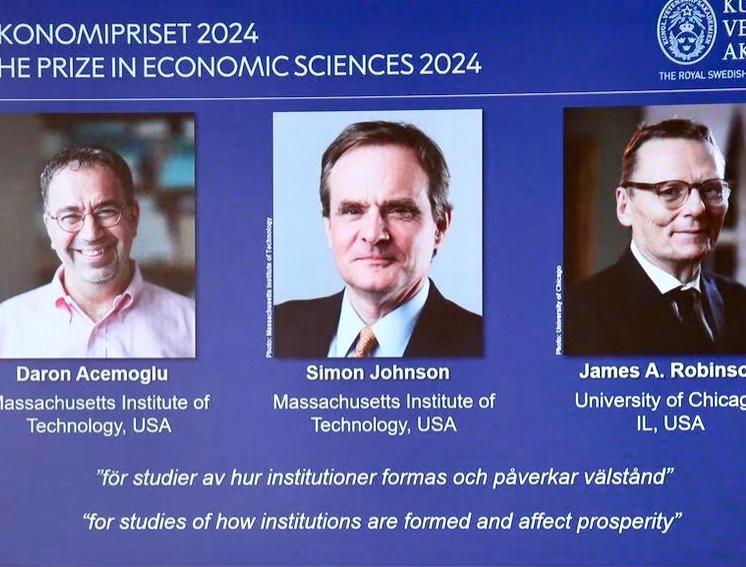
Nobel Prize To Offbeat Economists


This year the noble prize for Economics was not given to big convoluted theorists, but to those who are refreshingly rooted in reality. The winners are Daron Acemoglu, Simon Johnson and James Robinson, the first two are from Massachusetts Institute of Technology and the last from University of Chicago. They tackled the most important question of all- why are some countries rich and others poor? This simple question is the most important in real life economics. Mostly, the Economists deal with factors of production, labour, capital and, more recently, technology or ideas. They think that the greater the capital and the more productive its use, then the richer a country would be. Yet that still left a gap: why did some countries manage to accumulate more of these factors than others? The answer is that the institutions of any country determine its economic growth.
The trio highlight the role of economic and political institutions in determining the prosperity of the nations. They also offer insights about how institutions are formed. They demonstrated how societies with a poor rule of law, and institutions that capitalise on its population with an exploitative intent neither generate growth nor change for the better.
The trio examined the colonisation by the European countries. Colonisation, according to the trio, has shaped the institutional structures of many nations of the world and hence can explain their prosperity or lack of it. European nations used more authoritarian systems to control places that were densely populated like India. Those that were sparely populated like America and Australia often saw more settlers and established a more inclusive form of the governance. Different colonial strategies have led to different institutional patterns that have persisted over time.
Support for democracy is shrinking because it has not delivered expected jobs, stability and quality public goods. Authoritarian populist leadership styles endanger institutions and democracy falters. But democracy is still the best system today to tackle the most outstanding problems, including climate, change and threats to regional stability and peace. In order to deliver promise of democracy, its institutions should maintain the high ground. This is a message highly relevant for India, whose strong GDP growth hides many fault lines.
Institutional quality measured by indicators like the strength of democracy, the rule of law, security of private property, press freedom, and the absence of corruption has seen uneven progress around the world in the last decade. While some countries have made modest progress, others have experienced stagnation or even worsening of institutional quality. The work of this year’s Nobel Prize winners tells us why designing good institutions is crucial for economic growth. It is truly a wake-up call for policymakers around the world.







